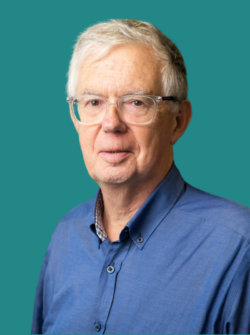We don’t talk nearly enough about…ignorance
David Haslam argues that we need to acknowledge our ignorance if we want to improve health and social care. Admitting what we don't know is the first step to learning more.
There is a time and place for almost everything, with the certain exception of kipper yogurt. And there is certainly no reason to be ashamed of saying “I really don’t know”.
I’ve been involved in national level health politics and policy making for over 20 years, and have worked in and for the NHS, initially as a part-time porter, then as a medical student, and finally as a doctor since – heaven help me – The Beatles were still releasing singles.
There are two phrases that I have not heard enough over those years from those in senior positions, and they are probably the two most important phrases imaginable – “Thank you” and “I don’t know”.
“Thank you” shouldn’t be hard to say, but I remember how upset one of my GP partners was that the NHS absolutely failed to thank him for his 40 years of service when he retired. Sure, his patients were effusive – and they are the ones who matter most – but it would have been nice for ‘the someone’ in the NHS system to have said “thanks”. But they didn’t for him, or indeed for me, or for anyone else I have asked. Saying thank you is a critical part of every leader’s responsibility, and we are all leaders. It’s easy.
In defence of ignorance
But saying, “I don’t know” can be really tough. All too often when faced with a problem we leap into action, and feel the need to do stuff.
Over the past couple of decades I must have lost count of the number of conferences, seminars and workshops that I’ve been to where yet another expert has the solution to quality improvement, or integration, or workforce planning, or patient and public engagement, or whatever this year’s enthusiasm might be. And then a couple of years later I’ve been to another round of meetings on similar topics only to have a different round of experts explain why the first set of enthusiasms didn’t work, but this new approach will solve it.
And surprise, surprise – it doesn’t.
Ignorance follows knowledge. We often behave as if it was inevitably the other way around.
These could all too easily sound like the rantings of a past-his-sell-by-date cynic, but they absolutely aren’t, because misplaced certainty can waste time, energy, money, and even lives. Instead, faced with a policy problem we should start with questions, rather than solutions.
Maybe I’m just being a doctor and a scientist with a scientific medical way of thinking, but in medicine diagnosis is needed before treatment. And in policy this doesn’t always seem to be the way.
No easy answers
So, you have a couple of teams who need to work more closely together but can’t seem to move their integration on. Off the peg solutions haven’t produced the success everyone hoped for. Surely the best thing is to find out what the problem is. What it really is. Which is probably not the cause that everyone tells you it is. Faced with the problem, it is so much safer and more logical to start with the mindset of “I don’t know…. what’s really going on here”, and to try and address that, rather than a mindset of, “I know the answer to this one”.
If answers were that easy, we wouldn’t still be facing exactly the same set of interpersonal and organisational challenges that we have faced for the past several decades.
After all, we all know that the more we learn, the less we seem to know. Ignorance follows knowledge. We often behave as if it was inevitably the other way around. Being truly aware of one’s ignorance has been the precursor of every major development in science. Being too certain blinds you to the opportunities ahead.
Try it. It’s great.
David Haslam is Chair of the National Institute for Health and Care Excellence (NICE). He also chairs Kaleidoscope’s Advisory Group.
This topic will be discussed at our Super Melting Pot on 16-17 January, where we will be exploring the things that we don’t talk nearly enough about.

